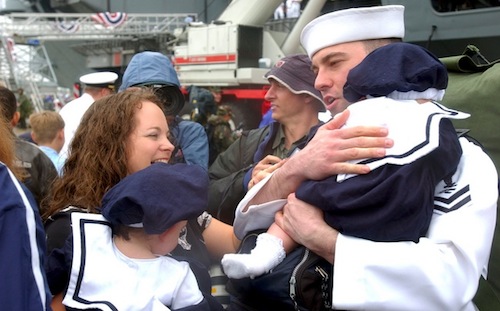My mom and I are sitting on the couch watching the Travel Channel as someone else us tours a majestic English castle.
Mom reaches for the remote. Someday, when I win the lottery, she sighs.
I tactfully refrain from reminding her that she has never bought a lottery ticket in her life.
I’m in the car with a friend and we’re sharing our worry about another friend who’s struggling. If I won the lottery, she says, I’d buy her a house and a little shop of her own and she wouldn’t have to worry.
We all have our lottery daydreams, the magical solution to our woes and the chance to make our castle-touring fantasies come true.
I’ve had some version of the lottery-winning conversation with almost everyone I know.
It seems to be embedded in our cultural programming—what would you do if you suddenly found yourself with almost unlimited spending power?
I’ve noticed that in almost every case, our vision for how we’d use our windfall might start with ourselves. Invariably it reaches outward like ripples on a pond—from what I would do for myself, to what I would do for family and friends, for others I know, for my community, for those in need and the world at large.
But with a practically bottomless bank account, it’s hard to imagine not giving to others. Of course, few of us will ever find ourselves holding the big cardboard check and waving for the cameras, especially if we never get in the game in the first place (sorry, Mom). And a quick Google search reminds us all too quickly that those winnings aren’t actually limitless.
What keeps us from doing those things now that we dream of doing post-lottery?
Fear.
Aknowledging of the limits of our paycheck. Uneasiness about spending now in case we lack later.
But guess what? You might not have picked the lucky numbers but you are already a winner. Your winnings have already been deposited and you can’t possibly spend them all away in this lifetime.
You’ve won the compassion lottery by being born into this life as a human and your lifetime supply of lovingkindness is inexhaustible.
Just think of all the glorious ways you can spend it—on yourself, on those you love, on those you dislike and on those you have never met.
When I think back on moments in my life when I recognized that a relationship was not right for me, an imbalance in the spending of compassion was a symptom every time.
That guy I dated who treated me like a queen but snarled at cashiers and servers. The friend who was sugar-sweet to strangers and acquaintances but treated those closest to her as if they were disposable. As if there wasn’t enough kindness to go around and it could only be spared for certain people in certain moments.
As if some people were not wise compassion investments.
When it comes to compassion there’s no spending limit.
No distinction between smart and frivolous. No reason to squirrel it away for a rainy day or guard it against hard times ahead. No one can steal it from you by trickery or violence. There’s no tax code to worry over, no forms to fill out.
And every time you spend it you are guaranteed an enormous return on the investment.
Take some time to review your compassion budget. Consider your compassion spending categories.
Self.
Loved ones.
Acquaintances.
The difficult people in your life.
Those whose work makes your daily life possible.
Community.
Animals.
All beings everywhere!
Are you giving to the fullest of your unlimited means?
Are you being too frugal with your truly boundless wealth?
~
Love elephant and want to go steady?
Sign up for our (curated) daily and weekly newsletters!
~
~
Editor: Ashleigh Hitchcock
Photo: wikimedia












Read 0 comments and reply